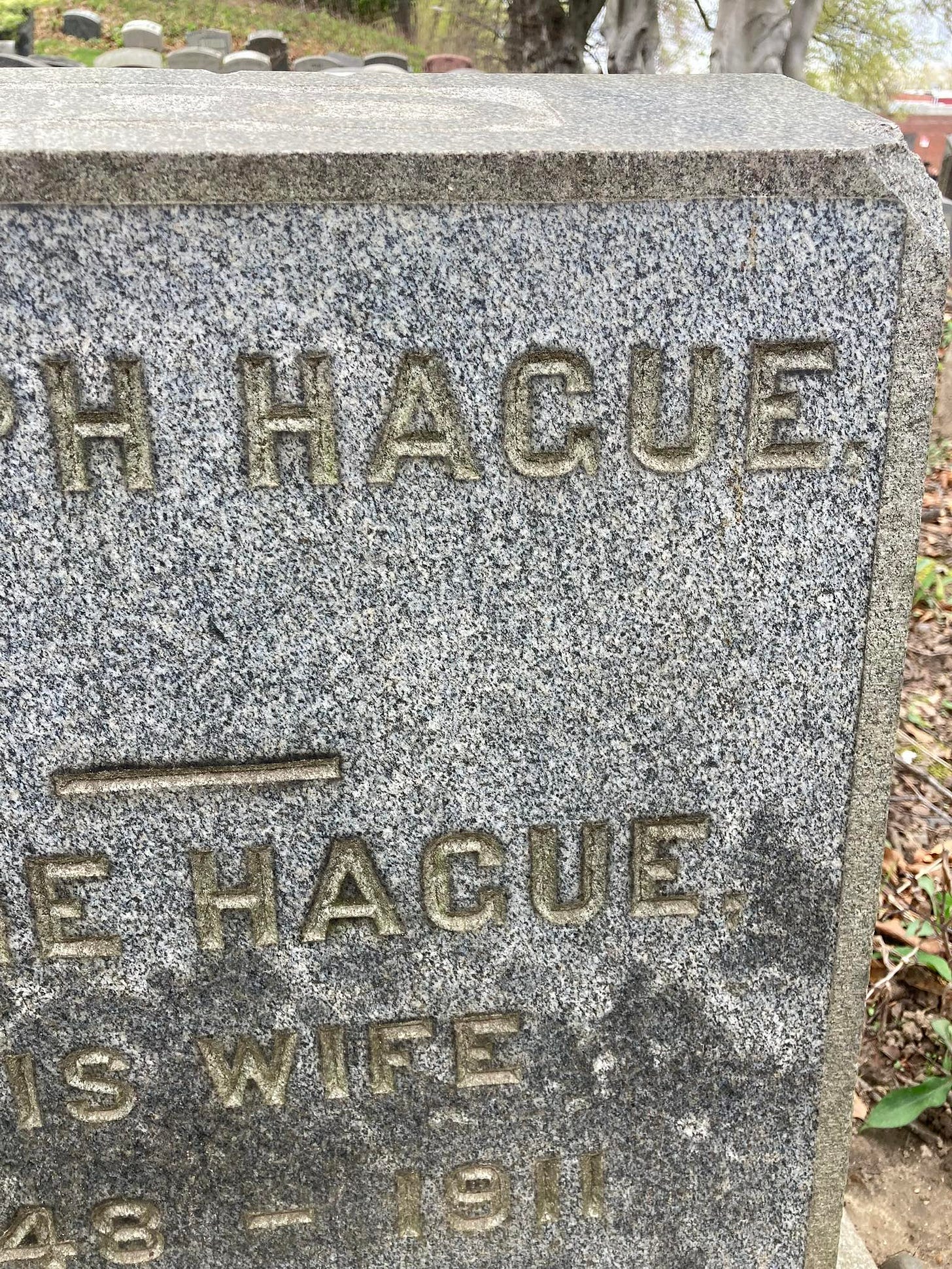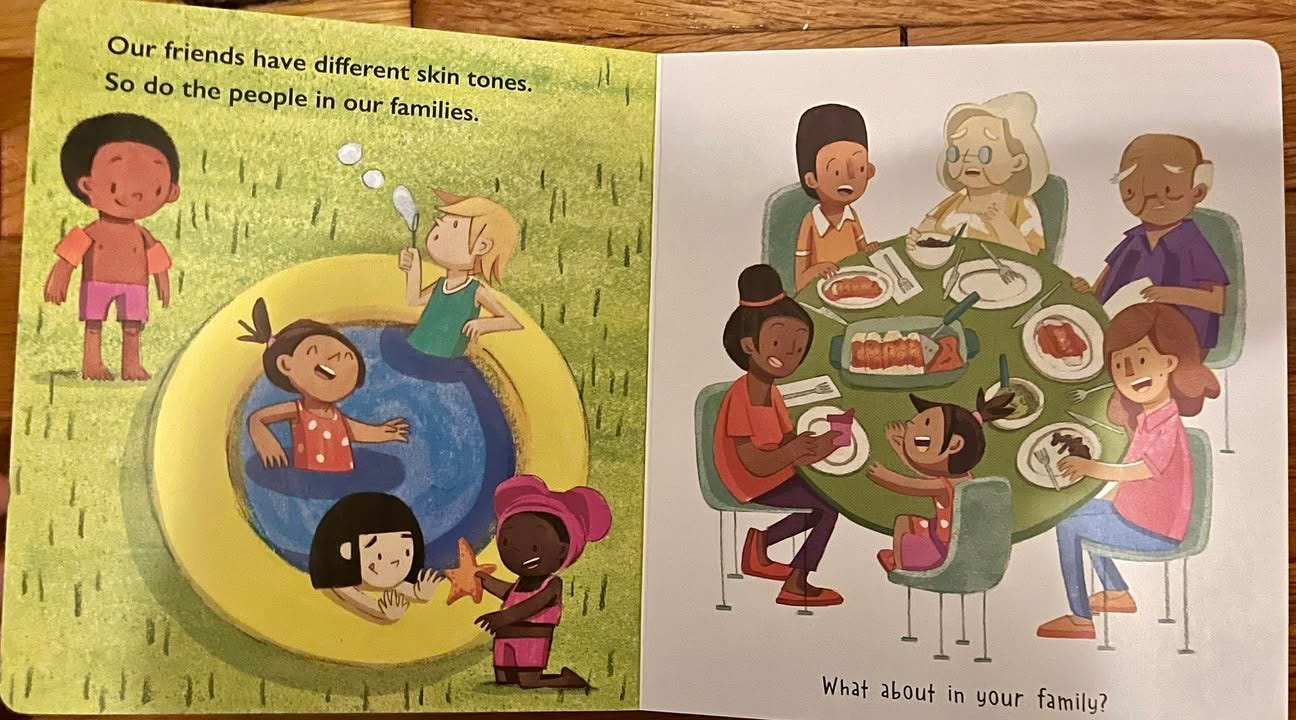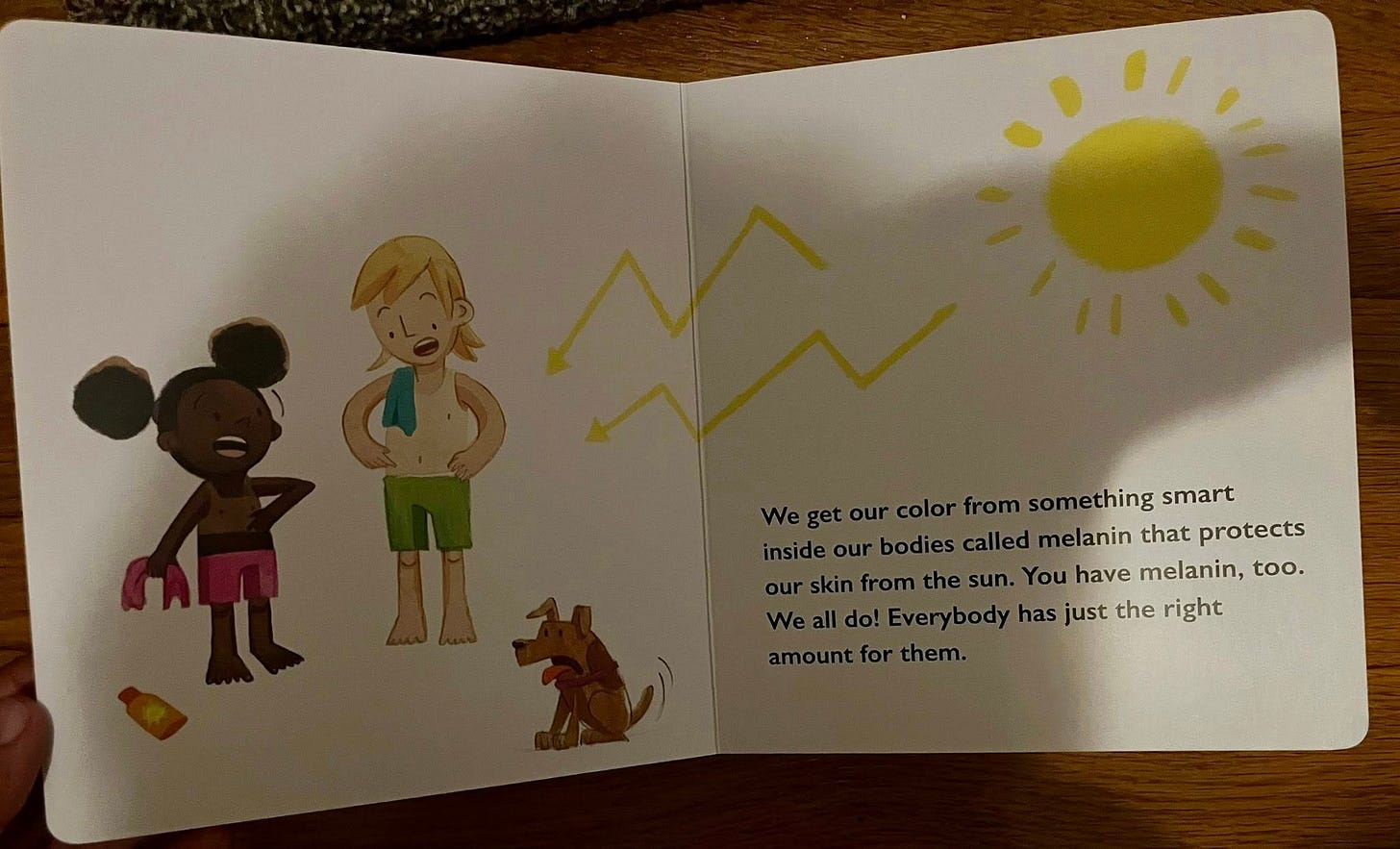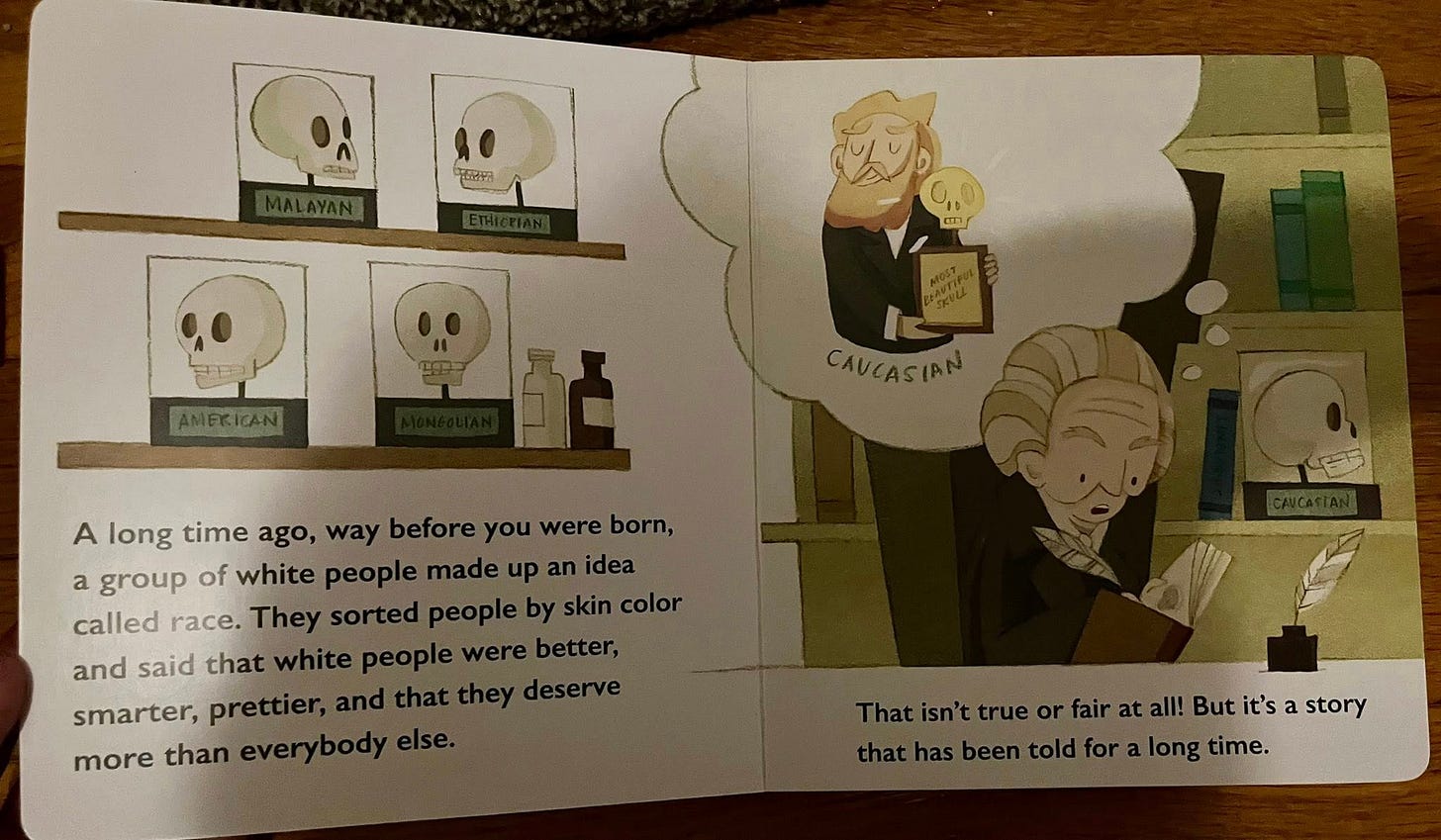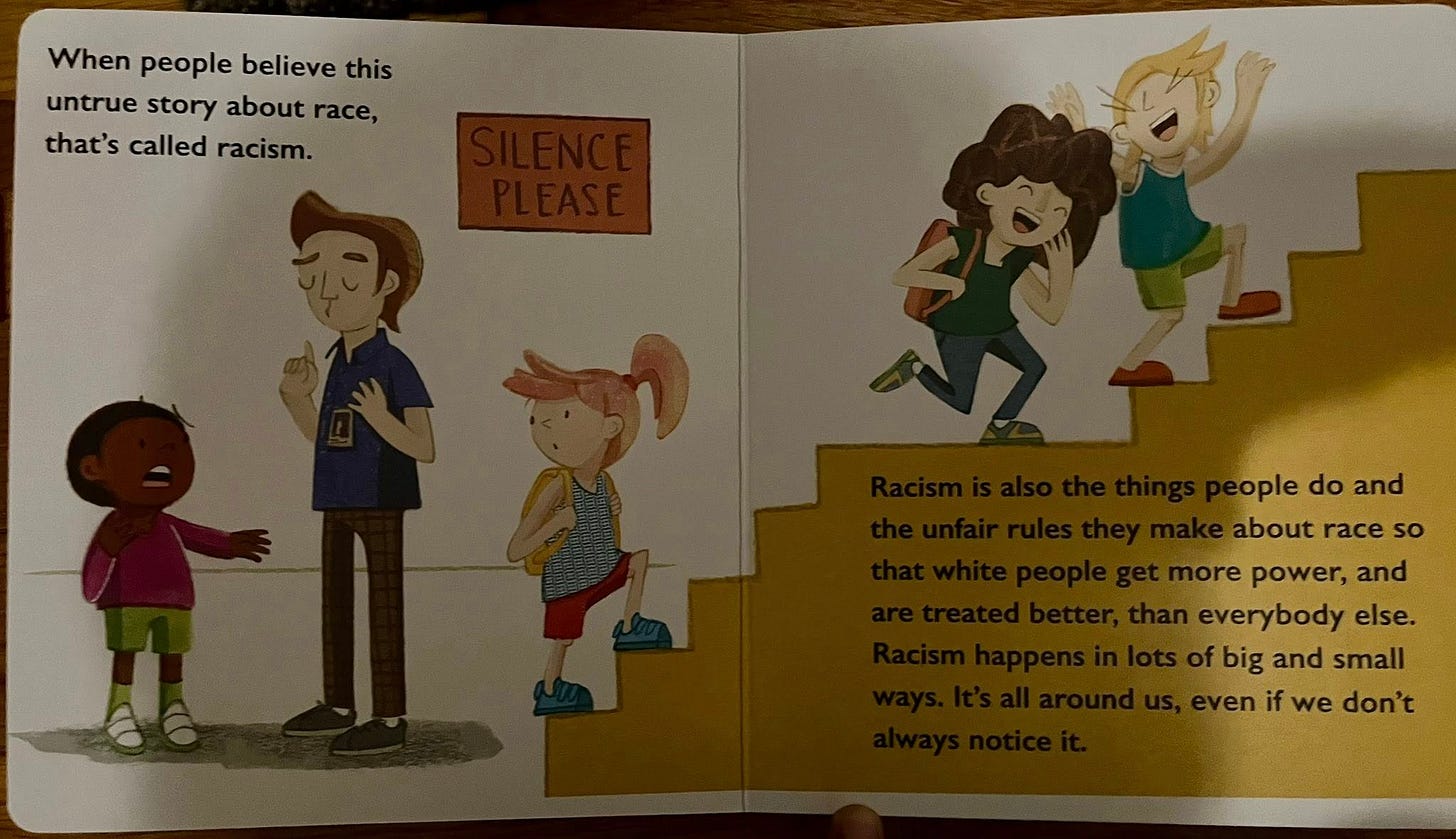On love and those buying into "profound autism" and surviving fascism
And ropes, mutual aid, building across difference, strangers, reading, and race
In this issue…
On fun problem-solving (Apr 18)
On love and those buying into “profound autism” and surviving fascism (Apr 20)
This song features excerpts from interviews with Japanese elders imprisoned in US concentration camps:
What I’m reading and listening to…
This is the most thoughtful, loving, generous, beautiful, strategic post about autism and eugenics in the US right now. Joyner of Neuromess is an autistic parent to 2 autistic kids, one who is similar to A-.
This book looks good! "Unfit Parent" by Jessica Slice on being a disabled parent.
The Center for Race and Disability Studies has an article about the impact of reorganizing the Health and Human Services (HHS)
An old one, but I still recommend the movie Omoiyari by Kishi Bashi - it's a "song film" about the Japanese concentration camps, with interviews of Japanese elders who were imprisoned. It's as much about the concentration camps, as someone opening their eyes to the history of our country and becoming an activist.
On fun problem-solving (Apr 18)
Yesterday Daniel told me that lately going to the playground A- just gets upset a lot, because he wants Daniel to go down the spiral slide (which is normal) but then STOP halfway down (which he can't do) and then also climb back up if he doesn't stop at the exact right spot (which he can't do).
So I said.... what about a rope? Affix a rope to the top of the slide so you can stop at any point.
So this morning we found a "climbing rope" that came with his doorway swing, and Daniel took it to the playground. And apparently it was a big hit and was exactly what A- needed!
How does mutual aid work for A-? (Apr 19)
Maybe inherent in my post about our fears about A-'s safety and the need for him to be known somewhere before he becomes old enough to be seen as a threat, is how can mutual aid work for him.
I believe strongly that the only solution outside of capitalism (which is the only solution for him to be seen as safe despite being a body-that-can't-produce), is mutual aid and community care.
But as much as I ask... how does that work for someone who doesn't have the communication and body ability to seek out mutual aid? Someone who is in an institution? Someone who is constantly at risk of being institutionalized? Nobody has an answer.
And I think that is the answer. If it it will take you years and years to be known and seen because you can't access group spaces offline or online or because you're in an institution, you need to be in a space for years and years, before you're seen as threatening, so that mutual aid just becomes a part of your daily being.
Building across differences, in action (Apr 19)
For ages, anti-authoritarian movement folks have been saying one of the most important things we can do right now is build across differences. Not because it’s nice or something. But because history shows the only way we can bring down the oligarchs is through a mass movement that takes all of us.
I think in almost every newsletter by the anti-authoritarian toolkit, he shares an action you can take or a framing you can make to have this issue be a “cross partisan” (or whatever you want to call it) issue. The Medicaid Non-violent Army has a May call on how to base build across differences towards a common goal (save Medicaid).
This isn’t a side coincidence that Autism Speaks (an autism hate org) combined forces with ASAN and others against RFK Jr. This is strategy and a beautiful example of strategy in action.
You can hold to purity politics, but you do so at your own (and all of our) demise.
I find this really, really hard in practice. Not only do I not want to talk to those that I consider hateful, I don’t even know how!! So this is quite inspiring.
The one area I feel like I could have a tiny impact is people who believe in “profound autism”. And not those who have power in that space… but through small interactions.
A few weeks ago a parent replied to a post on @The Thinking Persons Guide to Autism about how all these autistic folks don’t speak for their “level 3” kid and other parents don’t get it. Several commenters were jumping on that person - shaming them. How often does you getting shamed change your mind….? I honestly understood how he’s feeling and I told him that. Honestly a lot of people DO speak over us and our kids, while claiming they speak for all autistic folks / parents. It seemed like he engaged with me, and I suggested Heather Lanier’s book to him because she does a great job describing her journey from being ableist to realizing her ableism in a non shaming way. And he said he’d check it out! Maybe nothing happened, but I hope that that parent felt heard and understood and maybe felt an opening to see how there are people in the same situation as him who are seeing things in a different way and their life is better because of it. Maybe this is how we slowly build across differences towards the exact same goal, so that we can protect everyone from authoritarianism and capitalism.
On love and those buying into “profound autism” and surviving fascism (Apr 20)
The past week I feel like the overwhelm from the slaughter of it all has hit. And I’m actually surprised, though I shouldn’t be. I knew this overwhelm was by design - albeit way, way faster than I had expected - and I thought I was grounded enough in my various practices that it wouldn’t impact me. But it is. My saving grace, I guess, is that decades of mindfulness allows me to see it.
So perhaps it isn’t surprising that the past month I’ve gravitated to writing about radical love. Love of everyone. As a strategy. As survival. As self preservation. That includes love for those in power who explicitly cause hurt - RFK Jr. And love for those who’ve been manipulated by those in power who then hurt more of us - those parents who cling to “profound autism”. And even love for those who claim to be progressive but cause hurt to those like A- in their wake - like those who create an inclusion exception for kids like him (thus adding to the “profound autism” debate, unintentionally).
Before you say “but that’s ridiculous”, my inspiration for this today is kai cheng thom’s recent essay about her need for forgiveness to be able to survive. Even in the face of JK Rowling being proud of herself for the mass destruction she’s unleashed in the UK against people like kai cheng thom and her loved ones. She writes about how part of forgiveness is forgiving the parts of her who lived in righteous rage for decades - wreaking havoc on her own psyche.
Righteous rage which wreaks havoc on my own psyche. I can relate.
I shared the other day about an interview with Kiese Laymon that partly was about loving everyone. Even Trump. He wasn’t saying others should, he was saying he had to. It’s how he he was wired. I’m thinking of the book I got of kai cheng thom’s love letters to everyone, even JK Rowling. I’m thinking of Another Word for Love by Carvell Wallace about learning to love himself and everyone else, even through the trauma of racism, and learning what that means in practice.
It feels both important to defeat authoritarianism, and essential for meeting this moment as it is without shutting down.
——————————————
kai cheng thom:
So there it is: When I feel lost and crushed by the weight of a world that wants to annihilate me, I come back to the story of Princess Miao Shan not only because I identify with the Princess, but also because I identify with the King, which frightens me. For so long, I lived in rage and cynicism, and I felt ashamed and terrified of that. For years, I wrote about revolutionary love, and now I think I am finally starting to understand what it means to turn that love on myself - including the parts of me that terrify me.”
I forgive the people who want me dead. I’ll forgive them even as I fight them. I’ll forgive myself for wanting so much to just give up and go into that sweet night, even as I rise in grace and dignity. I will embrace my rage and feed it the flesh of my love, so that I can become something beyond anything that even authoritarian fascism could destroy.
I need every part of me in this dance and this struggle towards life: my compassion and my rage. Together, they make me sacred, make me capable of touching the divine, something that I will never allow any billionaire or bigot to take from me. That, I think, is what forgiveness is for.
How does “profound autism” keep anyone safe? (Apr 21)
Someone had posted on another group talking about the harm of "profound autism", that she has heard some parents find "profound autism" to be helpful when talking to the police about their kid's behaviors.
I accidentally replied and threw race into the conversation. Which is a mistake because once you say BIPOC, a lot of white people stop reading anything else you wrote!
What I realized in responding though, is that you never, ever, make your kid MORE safe by emphasizing the things that make him even *more* dehumanized in an ableist society.
Race aside (and I NEVER say race aside, so you know how much I want you to not think about race), I can't play out a scenario in which "profound autism" suddenly makes someone more safe.
Scenario #1
Parent comes to police station.
Cop: “maam… your kid is jumping around, making loud siren sounds, throwing themselves to the ground, flailing their arms. Next time I see them I’m going to have to arrest them if you don’t stop them from acting weird”
Parent: “my kid is autistic! They can’t help it!”
Cop: “doesn’t matter. They’re clearly a threat and nuisance. I don’t care if they’re autistic”
Parent: “I mean… they’re profoundly autistic!”
Cop: “ooooh why didn’t you say so?? They’re PROFOUNDLY autistic?? In that case please let them be, exactly as they are!! And here’s a toy for your kid. Have a lovely day. Can’t wait to see you both again!”
————-
Scenario 2 - cop encounters parent and kid and pulls out a gun
Cop: “put down that toy or I’ll shoot!”
White Parent: “noooo!! My son is autistic! He doesn’t know!”
Cop: “autistic?? Who cares!! I’m going to shoot!”
Parent: “I meant profoundly autistic!!!!”
Cop: *lowers gun* “Oooooh he’s PROFOUNDLY autistic!!! I didn’t realize that. Why didn’t you say that to begin with? Sorry to bother you!”
Like seriously.. when does a cop who is otherwise going to harm someone suddenly decide not to because of the word profound being added to it?
Random ableist encounters with strangers (Apr 21)
The other day when I was out with A- playing ready set go around a sidewalk / street corner (which he loves to do), an older man was raking leaves. And before he left he told me that people like me are like angels, or doing Gods work. I can’t remember exactly what he said but something that started out just like a nice normal parenting compliment (we all like to hear “you’re doing a good job!” from strangers) but then got weird fast.
Reading! (Apr 21)
Apparently today in speech therapy A- was doing flips and his amazing SLP wrote “flip” upside down on a whiteboard, and A- said “flip”. As far as I know this isn’t a word we’ve shown him before - or if we have it hasn’t been often! She suggested we continue to write words in unique and fun ways like that.
Then a few hours later A- was playing in the big cemetery they go to every Monday after speech, and he saw this gravestone and said “Avenue”. (Check out the “ue” there)
Our Skin - a first conversation about race (Apr 24)
It’s long overdue but we bought the book “Our Skin - a first conversation about race” and it’s so good! I think it took so long because I had planned to make a personalized Pictello about race and then never did.
In any case; the book is great. My friend Yesha’s colleague is one of the writers (shout out Brooklyn Public Library!), but it seems to be the perfect level of description about race for A-.
Prepping A- for possible futures (Apr 24)
CW: privilege of being able to move.
I’ve written before about our struggle with how do we talk to A- about what’s going on in the country without inserting anxiety where it didn’t exist (and without allowing anxiety to grow where it may exist).
In our case we also have the ability to move, which adds a layer.
So we just got this book - When a Bully is President - that a few of you recommended to help us talk about what’s happening.
And we also realized that, sort of like when my dad was dying we first had to talk about what living meant, we have to spend some time talking about the concept of moving in general. Daniel had the idea of getting a world map and just talking about where we’ve lived and moved to. What it’s felt like when we moved. He told him how Patiamma grew up in India and then moved to Canada. Stuff like that.
That’s all I’ve got so far but I’m sharing in case any of you are in similar positions!
*Note - we have no specific plans to move.






